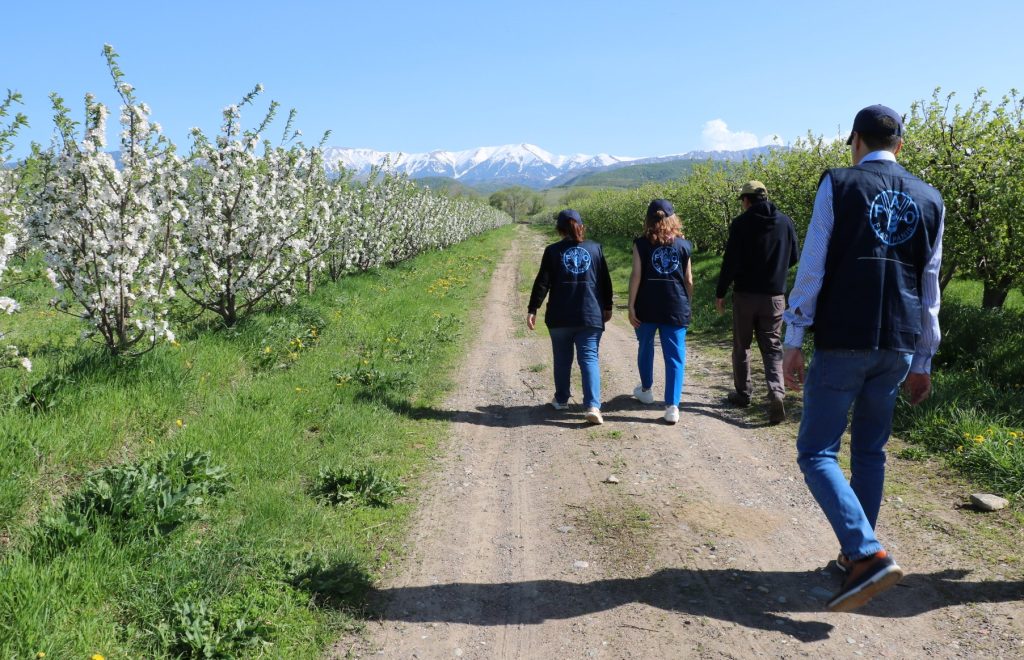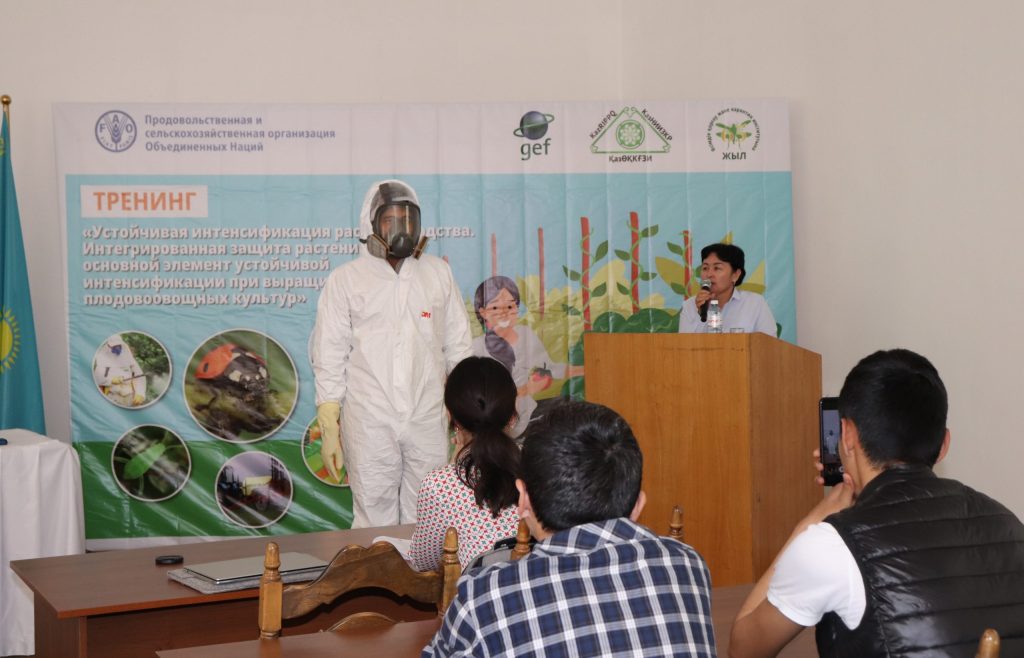FAO calls for integrated pest management to reduce risks to human health and the environment


Every year, farmers face pest and disease problems that negatively impact crops and their quality. Improper pesticide use caused by insufficient pest control knowledge and skills can lead to an increased risk of resistance in major pests and negative impacts on human health and the environment. An approach known as Integrated Pest Management (IPM) has been developed to combat these problems.
The Food and Agriculture Organization of the United Nations (FAO) and the Kazakh Research Institute of Plant Protection and Quarantine named after Zh. Zhiembayev are working to raise awareness about alternative methods of plant protection, including IPM. As part of these efforts, a workshop on integrated pest management in fruit and vegetable crops was held in Almaty on April 28.
The training was organized within the framework of the FAO project on the life cycle management of pesticides and elimination of persistent organic pollutants, funded by the Global Environment Facility (GEF).
Various pest control methods are used in agriculture to protect plants, including agronomic, biological, and chemical methods, cultivation of resistant varieties and others. An integrated approach to pest control combines different methods, with preference given to mechanical methods (e.g., various pest trapping devices) and the use of pesticides is minimized.
The workshop participants, including students and faculty members from the universities of Kazakhstan and Uzbekistan, got acquainted with proven and effective ways to increase the yield and quality of horticultural products without excessive use of pesticides. After the theoretical part of the training, the participants toured a mobile laboratory that scientists use to work in the field.
Pilot sites
To test the integrated pest management approach in practice, the project team selected the following crops: apples, tomatoes, and cabbage. On April 27, FAO representatives visited an apple orchard on a farm in the village of Baidibek Bi in the Almaty region, chosen as a pilot site. Tests comparing the traditional approach, organic farming and integrated pest control systems will be conducted there. At the end of the test, the residual amount of pesticides in fruits will be measured.
Meanwhile, many areas in Kazakhstan, including pastures, are contaminated with pesticide residues, in some cases containing, among others, persistent organic pollutants and heavy metals that require immediate remediation measures. To address this problem, the Pesticide Lifecycle Management Project is funding laboratory tests for bio- and phytoremediation of soils contaminated with pesticide residues.
Based on the study conducted by the Institute of Plant Biology and Biotechnology in 2010, a pilot site was selected in Saimasay village of Enbekshikazakhskiy district in the Almaty region, located near a former warehouse with obsolete pesticides. Based on the analysis of the soil samples from the contaminated site specialists of the institute will select biological material (bacteria) and phytoremediates (plants) that will help clean the soil from toxic substances.
